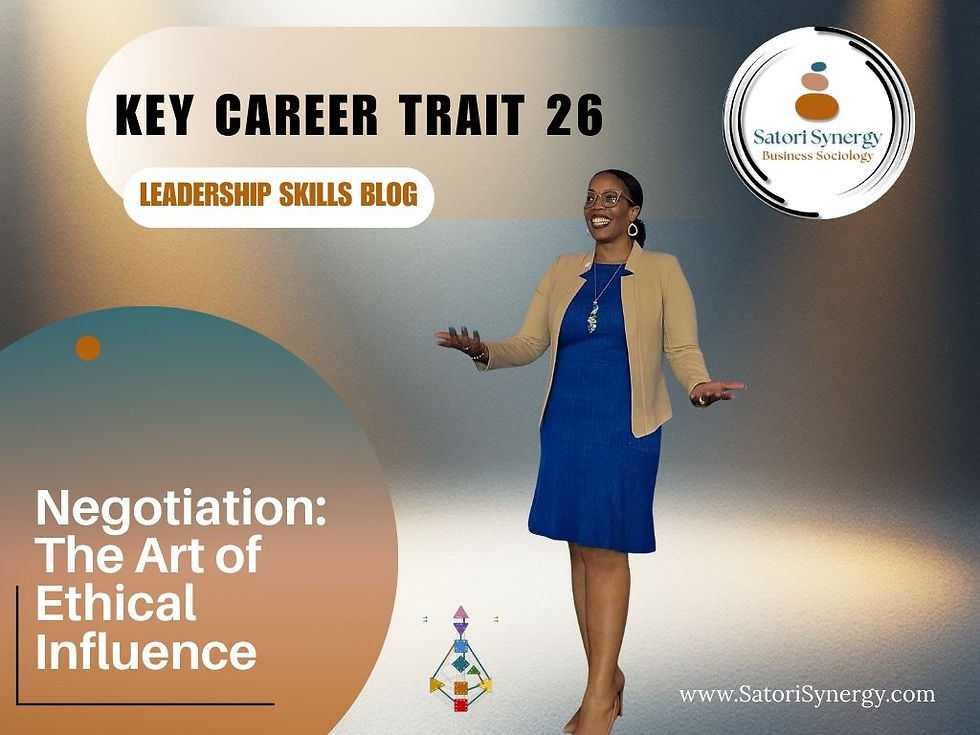Key Career Trait 39: STIMULATION
- Erica Hughey

- Jul 4
- 4 min read
Updated: Oct 18
THE TALENT TO INSPIRE OTHERS THROUGH PROVOCATION
As Katy Perry sings, "Baby, you're a firework!" Progress in the workplace environment requires dynamic provocation to spark clarity, action, emotional intelligence and ultimately evolution. Trait 39's energy is like a dynamite, it is energetic, forceful and wrapped in change and progressive experiences. Often times pressure, tension and obstacles can be seen as problems when it would be useful to look at them as strategic opportunities for growth and expansion.

This is the natural skills to shake things up, arouse the team's energy to help get them in touch with their emotional intelligence and remember their 'why' as individuals and as a collective. Trait 39 jolts the culture in the office which is quite the task because a lot of colleagues or clients are just in the workforce on cruise control and instead of purposefully participating. This skill requires a high level of self-awareness and emotional intelligence because your mood is a major factor in how others perceive and receive you. By you targeting the challenges you want to tackle and not acting impulsively, it allows you to foster innovate approaches while also maintaining a respectful atmosphere. Using your dynamic nature without conscious control may lead to you unintentionally creating tension or chaos in the work culture.
You have the extraordinary ability to draw people out of their comfort zones and encourage them to adopt new perspectives. In your work environment, this can mean breaking through creative blocks, kickstarting stagnant processes, or bringing fresh energy into the team. Your provocations are not meant to be destructive disruptions, but rather targeted pulses that create movement and release emotions. Especially in creative work or innovation processes, you can use your sense of timing to challenge established ways of thinking. Your goal is to encourage others to think outside the box and break free from habitual patterns. This way, you can not only move projects forward but also sustainably invigorate the dynamics in your team.
PROFESSSIONAL DEVELOPMENT:
At times, your presence alone rocks the boat and provokes a reaction out of others due to your supercharged emotional awareness. Do not get caught up in their initial reactions to you - whether they accept or reject you, that's not the point. The point is that you have upgraded and elevated them in some capacity and that can take them by surprise. With that, if you intentionally want to help someone better connect with their purpose, its best to wait until they ask you share your impactful emotional intelligence to ensure that they are are in the correct mindset to effectively receive your transformative guidance.
Here are six stages to developing this trait:
STAGE 1: DETACHMENT - Start by having the awareness of when to disengage temporarily when confronted with an obstacle. You'll find that sometimes, by you withdrawing you'll find your own way through an their is no need for forced interactions. Be mindful that some may find your disengagement provocative- just as provocative as if you had engaged, so it can feel like the old saying, 'damned if you do, damned if you don't.'
STAGE 2: CONFRONTATION - This is the call to face challenges head on and take the bull by the horns. Others can sense that you have this skill and may invite you engage in adversity to help them uncover a resolution. If you're not interested in using your skills as invited, be clear and direct that you are not motivated to do so.
STAGE 3: RESPONSIBILITY - You may feel a responsibility of self-sacrifice in some manner and act based on what is best for the group. This would look like avoiding confrontations and obstacles that put the team at risk.
STAGE 4: TEMPERANCE - After carefully evaluating and assessing before taking action you'll be able to better determine when is the correct time to engage for maximum benefits.
STAGE 5: SINGLE-MINDED - Discern whether your self-sufficiency is best to achieve progress or if you should allow yourself to find assistance in difficult times. In doing so, you access your ability to not to just overcome obstacles but to bypass them by imagining new patterns, policies or procedure that make the obstacles irrelevant.
STAGE 6: TROUBLE SHOOTING - Here, you finally embrace your natural gift of being a problem solver. You'll want to keep in mind that some people enjoy having their problems. So don't just jump up and save people without permission because taking away their crutch and identity may upset them. Don't dominate other with this skill, look deeper before trying to help or solve a problem to avoid causing more problems or repercussions.
Satori Synergy offers data-driven, transformative career and mindset coaching to change-ready individuals and organizations to cultivate successful work cultures and satisfying careers aligned with natural traits and strengths. Erica Hughey, MBA, created her signature consultation style, Business Sociology, to help you work smarter, not harder. As a BG5 Analyst trained at the Human Design Business Institute, Erica uses your Career Design Blueprint as an objective, individualized tool for tailored professional development, leadership training, talent management, and change management. She incorporates her knowledge in social intelligence, emotional intelligence and corporate cultural expertise to provide you with a holistic analysis and comprehensive consulting and coaching experience.
Get started by reading your personalized SOP, a Career Compass Report or schedule an expert Career Design Analysis session to discover and discuss your prominent leadership traits. You'll learn how to leverage your innate skills to transform yourself and your work environment solving for communications issues by using your specific interaction strategies and authentic decision making.







